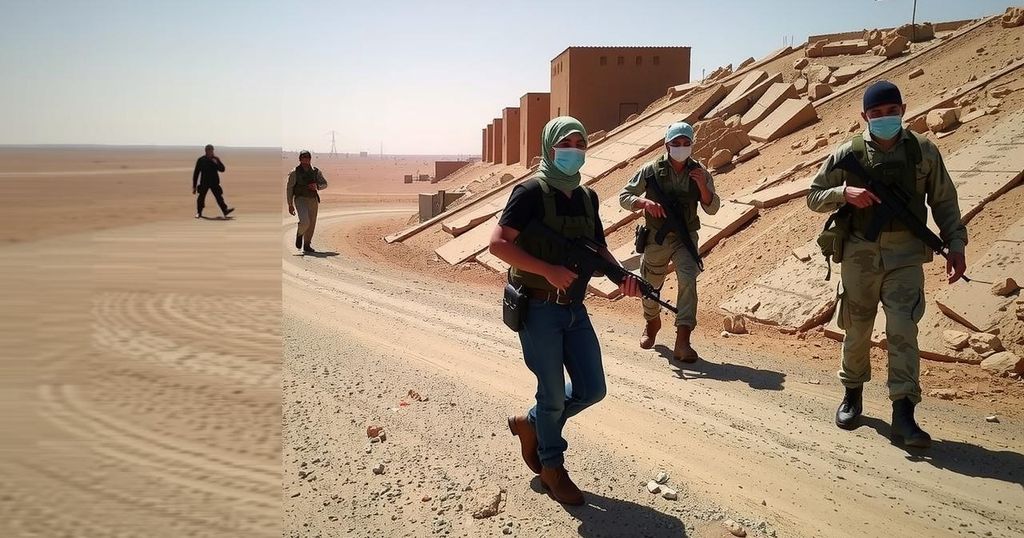Jordan has escalated military operations along its northern border with Syria to combat drug smuggling networks linked to Iranian-backed militias. Following violent confrontations, recent airstrikes were launched against drug production facilities in southern Syria as part of a declared “war on drugs.” These initiatives reflect Jordan’s commitment to national security against destabilizing threats stemming from such illicit activities.
Jordanian military forces have intensified their operations along the northern border with Syria, specifically targeting drug smuggling networks associated with Iranian-backed militias, such as Hezbollah. This escalation follows several violent confrontations with armed groups attempting to infiltrate Jordanian territory. On January 12, 2025, clashes between Jordanian border guards and armed smugglers from Syria were reported, with military officials confirming that these organized groups are backed by the Tehran regime, which utilizes drug and arms trafficking as destabilizing tactics in the region.
In response to these threats, Jordan has launched airstrikes on drug production facilities in southern Syria, marking a strategic transition from previous diplomatic strategies to direct military engagement. The Jordanian government presents this initiative as part of a broader “war on drugs,” emphasizing the critical need to secure national borders amid escalating concerns regarding the spread of Captagon, a potent amphetamine used by criminal syndicates and militias as a source of revenue.
Reports from various media outlets highlight that these smuggling activities are closely linked to Iran’s proxy forces, particularly Hezbollah, and have connections with the Fourth Division of the Syrian Army, which was previously commanded by Maher al-Assad. This division has been implicated in facilitating drug production and distribution prior to the Assad regime’s decline. The new Syrian administration has reportedly begun dismantling numerous drug labs associated with the previous regime, although significant challenges remain due to the scale and financial implications of these operations.
Jordan’s proactive measures underscore the heightened regional security threats arising from the nexus between drug trafficking and militia activities. A military official from Jordan aptly stated, “This is not just a border issue; it’s a national security imperative. We cannot allow these networks, funded by Tehran, to continue destabilizing the region.” Furthermore, a joint security agreement between Jordan and the new Syrian government has further strengthened their commitment to combat cross-border smuggling, with both nations undertaking significant initiatives to address this crisis effectively.
The dynamics of drug trafficking in the Middle East, particularly involving Iran and its affiliated militias, have become increasingly problematic. The region has witnessed a rise in illicit drug trade, primarily of Captagon, which serves as a financial lifeline for numerous armed groups. Jordan has historically been concerned about the spillover effects of such illicit activities from Syria, especially given the involvement of Iranian-backed militias like Hezbollah, which utilize these operations to destabilize neighboring countries and finance their activities. Recent efforts by both Jordan and Syria to enhance border security and counter drug trafficking demonstrate the urgency of addressing this pressing security threat.
In summary, Jordan’s recent military operations against Iranian-linked drug smuggling networks signify a decisive shift in its strategy toward combating both drug trafficking and militia activities that threaten national security. The nation’s resolve to enhance border security, engage in military actions, and collaborate with neighboring Syria underscores the importance of addressing these intertwined issues. As the situation evolves, it remains critical for regional actors to unite in countering the destabilizing influence of Iranian-backed groups and their drug trade operations.
Original Source: www.ncr-iran.org






